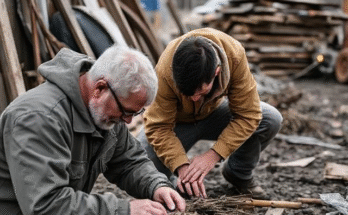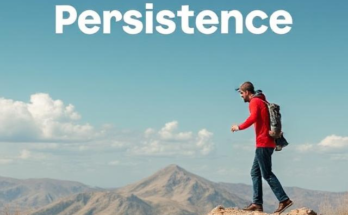Introduction
Picture yourself on a forked road; on one side is the well-paved, smooth road to success; on the other side, the rocky, bumpy road of adversity.
The former sounds nice but generally it is the latter that makes us better, stronger, more experienced humans before sending us off into the world without our rattles.
This article explores how adversity influences who we become, preparing us with life skills that success by itself cannot offer.
Adversity: The Unseen Teacher
Adversity is an important teacher on the course description of life. While success usually creates familiarity and comfort, adversity forces us to step out of our comfort zone and tackle the unknown.
It compels us to encounter resilience, sharpen the problem-solving skills, and hone the perseverance that we need for traversing uncharted territory. In fact, in a lot of cases, your deepest personal or professional growth comes not in the moments of comfort, but in the trials that push you beyond what you believed were your limits.
Inclusions ranging from the Literary to Philosophical to the Practical; because despite — or in addition to all that pain — adversity strengthens character, as we get to know ourselves and better understand the world around us. It shows us to welcome failure if it is the path to success, adjusting mindset and spirit.
Those who figure out how to dig valuable lessons out of the rubble of those hard times emerge from the experience stronger; more able; more capable the next time around.
But adversity doesn’t just test us—it changes us, turning ordinary people into the leaders, entrepreneurs, and visionaries that others look to when times are tough.
Building Resilience Through Hard Times
Adversity is an important teacher in the classroom of life. While success can create comfort and ease, it’s adversity that pushes us beyond ourselves into new and unsure territory. It compels us to cultivate resilience — the quality to emerge from difficulties stronger than we were before.
Most of the time, the deepest personal and professional growth does not emerge from the easy moments but rather from the challenges that push the boundaries of who we are and what we are capable of.
[Read: Why You Need to Practice Resilience] Miriam D. Learning to be resilient is really learning how to grow from adversity and using those lessons to carry you through whatever you do next.
Every reverse is progress over our making, an opportunity to improve our growth, and another reason to keep going. When you adopt adversity as a lesson, you develop an unbreakable spirit—one that turns challenges into lessons and defeats into rocket fuel for your success.
In addition, adversity develops character and expands our perspective on ourselves and our environment. It encourages us to take risks and become resilient, making it clear that falling short is part of the journey and that one must be mentally tough and adaptable.
People who learn to extract the lessons hidden behind most difficult experiences come out stronger, more resourceful and more prepared to deal with future challenges.
In other words, adversity does not just challenge us—it makes us, molding men and women into leaders, creators, and visionaries who motivate others to fight through adversary.

Cultivating Empathy and Compassion
Adversity tends to make us more empathetic and capable of compassion, improving our capacity for understanding and emotional intelligence. Through struggle,
we become more aware of how others are struggling, and we become more connected to one another. Suffering not only creates greater empathy toward those struggling with similar situations but also builds emotional resilience and nuance
Perspective Shift: Viewing Adversity as an Opportunity
Adversity breeds creativity and promotes creative problem solving. We feed on adversity and use it as fuel to find ingenious ways around roadblocks. Instead of a hindrance, adversity can be a pillar for growth and resilience.
Dr. Martin Luther King Jr. is an example of a leader who used strategic problem-solving to overcome the challenges faced during the Civil Rights Movement. His focus on nonviolent resistance in the face of deep social injustices exemplifies the role of creative and thoughtful leadership.
With this sense of purpose he devoted his life to bringing change in the civil rights movement and change that will change the face of the politics forever, He proved with his life that persistence and creativity can overcome even the most intractable challenges.
Embracing Change and Adaptability
Unwelcome and sudden change was oft experienced in the face of adversity. This prepares us to face future uncertainties with greater flexibility and readiness.
How to deal with such situations (loss of job or personal setbacks) will teach us how to deal with life’s uncertainty and align our responses with future challenges. While these difficulties are not easy to bear they are opportunities for us to grow, build resilience, and discovering our strengths. We cultivate the ability to thrive in an uncertain world by leaning into change instead of resisting it.
Harvard Business Review states in this article that their research shows Harvard Business Review that surviving challenges leaves us more adaptable, an invaluable trait when the world is constantly changing.
Success Through Failure
Many people consider failure a setback, but it is an essential step in the direction of success. Every error, every mis-step, every disappointment holds a lesson that moves us nearer to our aims. All of the greatest innovators, leaders, and achievers have experienced failure but used that failure to come back bigger, better, and stronger than before. And not fearing failure, but learning from it, makes you stronger, and better over time.
Rising through failure means perseverance, flexibility and improvement process. Every failure tells us something, each failure shaping our wisdom, developing a new plan of action
Conclusion
That adversity is more than a hurdle to be jumped; it is the very thing that gives us what we need to grow resilience, empathy and problem-solving skills in us. When encountering a challenge we are led to see it as an opportunity and accept change as a lifelong lesson. So, from now on whenever you come to one of those crossroads and the road of adversity calls out to you, remember the rewards it has to offer.
Takeaway: Everything happens for a reason and when life throws you challenges, embrace them as stepping stones that teach you something unique. Think about what challenges have taught you and how those lessons can help serve to bolster your resolve and wisdom.
“Adversity is a lot like a strong wind. It strips us of all but the things that cannot be stripped so that we may see ourselves as we truly are.’ – Arthur Golden



